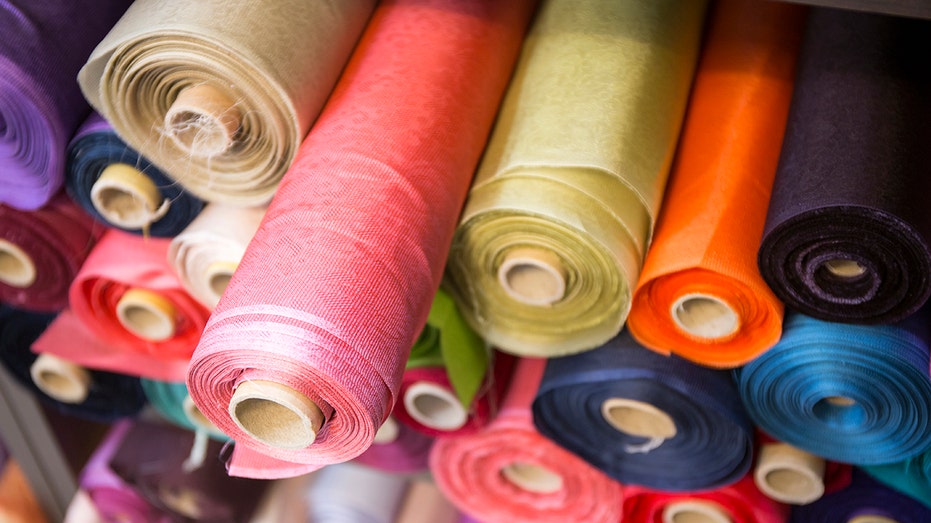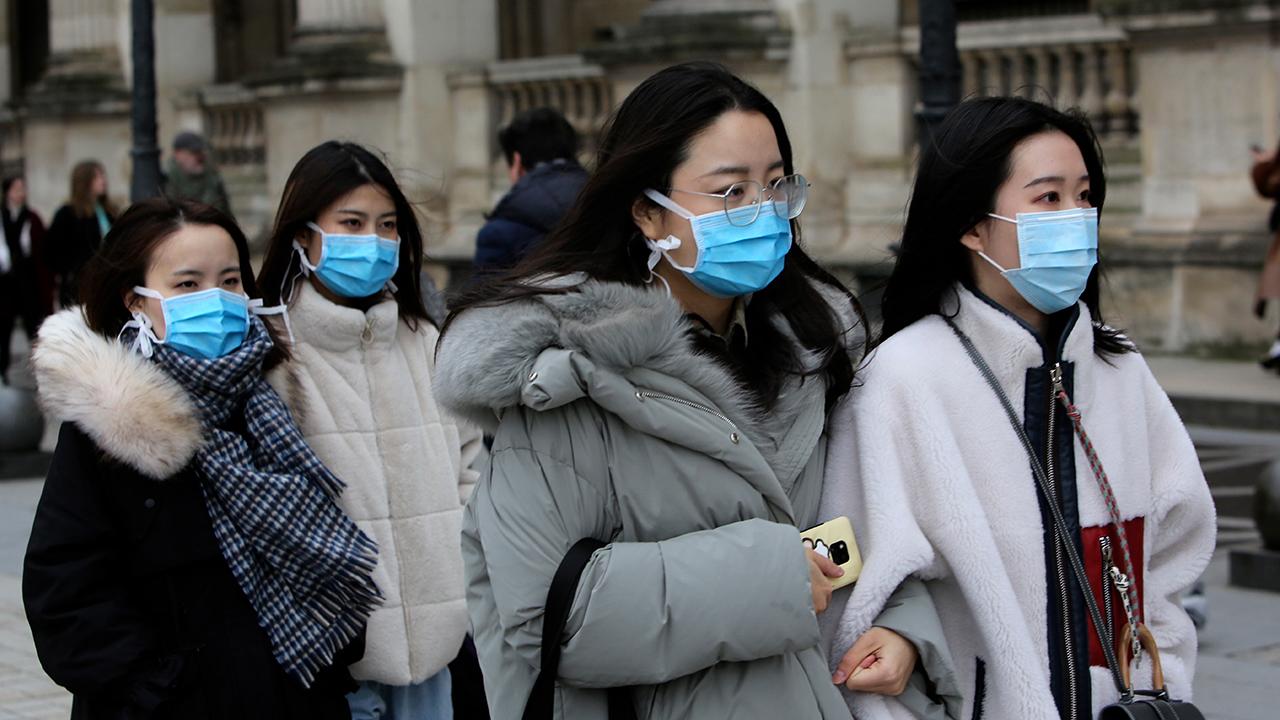Coronavirus may create wedding dress shortage if outbreak persists
Fabric and production shortages threaten upcoming nuptials as orders for wedding attire continue to be delayed
A number of industries have slowed production as the coronavirus continues to infect hundreds of residents throughout mainland China, and the wedding dress industry is one that may be at risk of fabric and manufacturing shortages.
CORONAVIRUS COULD CREATE TOY SHORTAGE
The coronavirus, which has been classified as COVID-19, has infected nearly 80,000 Chinese residents and caused 2,870 deaths related to the illness thus far, according to Johns Hopkins' live tracker. Warehouses in the Wuhan region of China have been hit hardest, with an estimated 46 million people under city-wide quarantines.

(iStock)
Business development resource One Click Advisor told FOX Business that one of its wedding clients has revealed that travel restrictions imposed on China have significantly played a role in the silk trade. Prices on silk sheets have gone down while the prices on silk moths have climbed drastically.
"Silk moths are native to China and can be bred elsewhere, but China dominates the market. The life cycle of the silk moth is six-to-eight weeks, with most cocoons harvested in late spring," One Click Advisor's insider explained. "If travel bans are lifted by then, the silk trade could return to normal in mid to late summer. Until then, plan for greatly increased prices for whatever silk is already available, because there will be shortages."
"Nearly 80 percent of wedding dresses are produced in China and even if they aren't made there that's probably where they are sourcing their fabric from so nearly everyone is impacted on some level," said Kaleigh Gallagher, the founder and CEO of Flutter Social – a premium wedding planning concierge.
CORONAVIRUS CAUSING NHL HOCKEY STICK SHORTAGE
"And it's not just bridal gowns that are taking a hit. Our Planners are also advising our couples to get their bridal party dresses and suits ordered earlier than usual due growing delays," Gallagher added. "It's hard enough to get everyone in your wedding party ordering their dresses and suits on time but the sooner decisions can be made and orders placed the better."
Clients of Flutter Social are seeing delays up to six weeks, Gallagher told FOX Business. Typically bridal gowns require a four-to-six-month lead time that is required for bridal gowns while bridesmaid dresses require three-to-four months, which could spell trouble for spring-summer brides, grooms and wedding party members who haven't already ordered their attire.
Around 78 percent of all weddings take place from May to October, according to research conducted by The Knot.
Hairstylist Briana Limitone caught wind of production delays from the clients who visit her salon. Several mothers of teenagers shared that their daughters had been disappointed they couldn't order their dream prom dresses since many manufacturers cannot meet the demand while the coronavirus continues to spread.
CORONAVIRUS DISRUPTS CHINA MEAT IMPORTS, FOOD SUPPLY AMID PORK SHORTAGE
Limitone, who is getting married in November said she was concerned when she heard the news since she and some members of her wedding party still need to order their dresses, however, the company reassured her that dresses ordered in a timely manner shouldn't be impacted.
"I'm very worried about the delays because we are spending a lot of money to purchase certain things that are our style,” she told FOX Business. "If you're a bride and you're looking for a dress or a specific designer and you know where it's coming from, order it as early as possible so you won't waste your money or have a rant later on."
So far, the bridal salons Limitone has been talking with are confident that they can deliver her Jenny Yoo gown in a timely manner. Others, though, haven't been so lucky, according to various wedding groups.
"Due to the threat of Coronavirus in China, Jenny Yoo is taking extra precautions to protect their factory workers. As a result, their order timeline has been extended from their usual 12 weeks to 20 weeks," one bride shared in a redacted email posted to Facebook. "Unfortunately, Jenny Yoo is not offering any rush options due to uncertainty in their shipping timeline."
FOX Business reached out to Jenny Yoo for comment on how the coronavirus is impacting the bridal wear business but did not immediately hear back at the time of publication.
WHAT IT WILL COST YOU TO WALK DOWN THE AISLE IN 2020
It's not just large bridal companies that are feeling the pinch from the coronavirus. Creative Director Natalie Harris of New Heritage Bespoke Bridal and the Renegade Bridal Collection told FOX Business that indie brands have had to adjust as well.
"I manufacture in factories in Guangzhou and Shenzhen. They told me they returned to work on Feb 10. They did warn of a possible two-week delay, which sounds on the minor side relative to the information some larger brands have provided to their retailers," she said. "Personally, I factor in a buffer of one-to-three months for bridal orders. Thankfully, none of my brides' orders will be impacted beyond that expectation already set."
GET FOX BUSINESS ON THE GO BY CLICKING HERE
Harris added that she believes wedding retailers that rely on "stocking popular styles marketed for 'quick delivery' will find that that stock may diminish quickly."
Although Harris said her business hasn't been harmed by the coronavirus, she acknowledged that her companies are not accepting prom or rush bridal orders due to uncertainty in the market.
"Generally production takes around a month, but often quality control necessitates edits after completion," she said.
Another unique circumstance her companies have to navigate is the estimated 20 percent loss in annual revenue they expect from skipping out on this year's prom season.
CLICK HERE TO READ MORE ON FOX BUSINESS
"Prom season overlaps with heavy bridal gown shopping season, so I consider this year a bit of an experiment, as we double down on bridal, and that more desirable margin, instead," she explained. "Another challenge is accessory sales, which tend to be an add-on special order once brides' gowns have arrived. I do not usually carry veil inventory, but have ordered a handful of pieces to prepare."




















